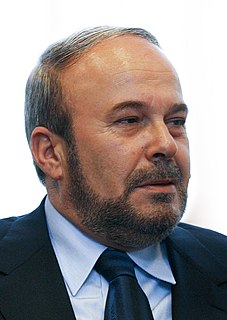A Quote by Lech Walesa
Irrespective of todays judgment and the price we had to pay in this generation, we were able to close an epoch of divisions, different blocs and borders, opening the way for an era of globalization.
Related Quotes
It was something very beautiful because we all had that interest. We were very close to all of the different groups of the time - the ones that we began to play with in the same venues - Maldita Vecindad, Caifanes, Botellita de Jerez. However, we were all very different, and each group had their unique way of expressing themselves; their own original voice. It was a very beautiful era of Mexican music, and the truth is that we are very fortunate to have been part of it.
For me, it was always clear that Toni Erdmann is more a film about what globalization, capitalism, does with private relationships much more than making a "political" film. It's more interesting to raise questions, because I don't feel in a position to "make a statement" with the film. Toni Erdmann comes from a completely different generation then his daughter, it's the post-war generation, they were very politically engaged. They raised their children with a lot of human worldviews, sent them out in the world believing in a world without borders.
One aspect of our site that I really appreciate is how I put up as much information as I've been able to keep track of: dates, the venue, the city, the country, the number of people there, the door price, opening bands, that sort of thing. One of the very first comments we had was from a guy who said, "By the way, the opening band in Albany in 1993 was not the Very Nice Neighbors, it was the Very Pleasant Neighbors." That brought a great joy to me.
Globalization has become an ideology with no constraints. And now, nations are forcing themselves back into the debate. Nations with borders we control, with people that we listen to, with real economies, not Wall Street economies, but rather factories and farmers. And this goes against this unregulated globalization, wild, savage globalization.
My parents were both first-generation Irish Catholics raised in Brooklyn. But it was more for me - it was that women of that generation were even less likely to express themselves, more likely to have that active interior life that they didn't dare speak out. So I was interesting in women of that era. I was interested in the language of that era. There's so much. And, certainly, this is cultural, so much there wasn't spoken about.

































